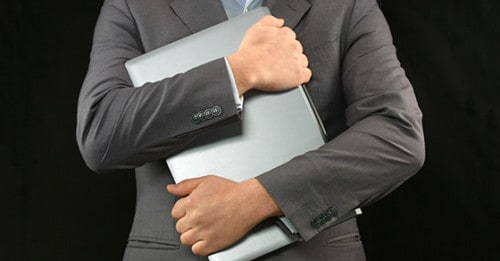
To head off employee theft, businesses need to know what crooked employees are most likely to steal. The number one preference is cash. But if that’s off limits, the next choice is something expensive that they can use outside work. And, of course, the most costly and useful items in most offices are laptop and desktop computers and other technological devices.
Mark Equipment
How can your company protect its technology assets from theft? First, consider adding security plates and indelible markings. These additions can help you track stolen equipment, inhibit resale and discourage thieves from ever trying to steal.
Security software also can track a stolen computer online. As soon as the thief connects to the Internet, its software contacts the security firm’s monitoring system, which traces the machine’s current IP address. To locate a physical address, firms use GPS and Wi-Fi tracking. However, there can be legal obstacles to obtaining the actual address of a thief.
Most computers and mobile devices can also be tracked by sites and apps such as Google, Facebook and Dropbox, which capture the IP addresses of users when they log into their accounts. Apple products can be tracked using iCloud.
Fasten it Down
To keep laptop and desktop computers where they belong, you can lock them down with cables and attach motion sensor alarms. If you store numerous laptops on your premises, consider locking them in heavy-duty cabinets or carts when not in use.
To deter desktop computer theft, consider a locked steel case bolted to the desktop. If you prefer not to drill holes in furniture, you can attach super-strength adhesive security pads to desks or other furniture to prevent thieves from lifting the equipment off the surface.
Keep it Safe
It’s worth the effort to add extra security and keep your company’s assets where they belong. Also make sure that your business insurance provides adequate coverage for computer losses. Contact us for more information.
© 2018
---
The information contained in the Knowledge Center is intended solely to provide general guidance on matters of interest for the personal use of the reader, who accepts full responsibility for its use. In no event will CST or its partners, employees or agents, be liable to you or anyone else for any decision made or action taken in reliance on the information in this Knowledge Center or for any consequential, special or similar damages, even if advised of the possibility of such damages.